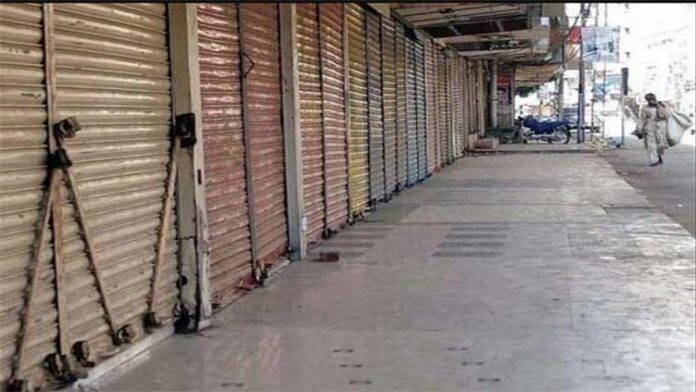Traders in Pakistan’s two major commercial hubs, Karachi and Lahore, shut down businesses on Saturday in protest against tax measures introduced through the Finance Act 2025-26.
The strike was led by the Karachi and Lahore Chambers of Commerce and Industry and marked one of the largest business community protests in recent years.
In Karachi, about 90 percent of commercial activity remained closed, including wholesale and retail markets, industries, and fruit and vegetable markets. KCCI President Jawed Bilwani said it was the first time the city’s business community had voluntarily closed down operations in such a coordinated manner.
He added that all seven industrial zones stopped production and no export consignments were dispatched to the port. Goods transporters also halted movement, affecting both imported raw materials and finished goods.
Business leaders are demanding the suspension of Sections 37A and 37B of the Sales Tax Act, which allow arrest and prosecution of taxpayers without due process. They are also calling for the withdrawal of Section 21(s), which targets cash-based transactions, and the restoration of the Final Tax Regime for exporters.
In Lahore, markets also remained shut as traders joined the strike despite the Federation of Pakistan Chambers of Commerce and Industry’s earlier announcement to withdraw the call. Markets including Shah Alam, Hall Road, Urdu Bazaar, Anarkali, and Azam Cloth Market stayed closed, with some partial activity in areas like Abid Market.
Traders said they would continue protesting until their demands were met.
LCCI President Mian Abuzar Shad called the strike a unified stand for economic justice and said July 19 would be remembered for the business community’s action. He said Lahore and Karachi together represent more than 60 percent of the national economy, and that this majority chose to close operations voluntarily to send a message to the government.
Mr Shad said the LCCI held around eight hours of virtual discussions with senior officials, including SAPM Haroon Akhtar and FBR Chairman Rashid Langrial, but received no written commitment. The chamber is seeking revisions to Sections 37A and 37B, changes to e-invoicing and e-Bilty systems, and withdrawal of new tax rates, including 16 percent sales tax on property rent and 20 percent tax on transactions above Rs200,000.
In contrast, business activities continued as normal in Islamabad and Rawalpindi. Islamabad Chamber of Commerce and Industry President Nasir Qureshi said the chamber is waiting for the outcome of government assurances.
Ajmal Baloch, President of the All Pakistan Anjuman Tajiran, announced a nationwide protest campaign starting July 26. He said it would begin with demonstrations and could escalate into phased strike actions if their concerns are not addressed.
He accused the bureaucracy of misleading the government and warned that protests would intensify if the new FBR powers remain in place.




